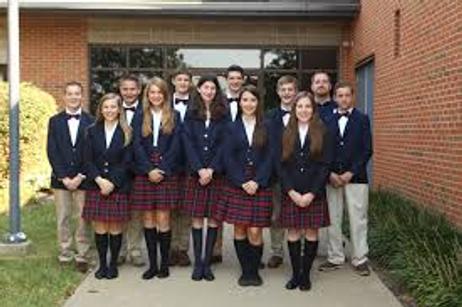Christian schools as a genre have been around since the 1950s. Recently, a subset of Christian schools known as classical Christian schools has become popular. This seems to have come about because standards in public education have steadily fallen. Many parents will not tolerate shoddy disciplinary standards, sloppy dress codes, violence in our schools, underachievement, and low expectations. As a result, they start their own schools.
Background
Classical Christian Schools trace their origins back to the revival of classical education in the late 20th century, particularly influenced by the works of scholars like Dorothy Sayers and Douglas Wilson. These schools seek to combine the rich heritage of classical education with a distinctly Christian worldview. The approach used in Classical Christian Schools is centered around the trivium, a three-part division of learning that includes the grammar stage, the logic stage, and the rhetoric stage. In the grammar stage, students focus on the foundational knowledge and facts of various subjects. The logic stage emphasizes critical thinking skills and logical reasoning, while the rhetoric stage focuses on effective communication and persuasive expression. Throughout all stages, the integration of Christian faith and principles is a guiding principle, with biblical teachings woven into the curriculum and classroom discussions. The goal is to cultivate students who are not only well-educated but also deeply grounded in their faith, equipped to engage with the world thoughtfully and confidently.
A classical Christian school proclaims Jesus Christ as Lord and Savior. It also adheres to the principles of classical education as set out by educators such as Dorothy Sayers, John Milton Gregory, St. Augustine, and Douglas Wilson. Parents and students enroll in a classical school because they, too, embrace the mission and teachings of the school. Teachers are required to sign a statement of belief as well. The result is a school community that is tightly focused on its aims and objectives. Put another way, if you cannot subscribe to these beliefs, then you need to look elsewhere for your child's education if you are a parent.
From the Sayers Classical Education website:
The modern resurgence of classical education can be attributed to an essay written by Dorothy Sayers. Dorothy Sayers was an English writer who graduated from Oxford. In 1947 while at Oxford, Sayers presented an essay entitled “The Lost Tools of Learning.” In the early 90's her essay captured the attention of educators and has become one of the most widely read essays on classical education. Although Sayers was not an educator herself, she does address the problems of modern education in terms that speak to the heart and mind of those who have passed through the system and found their education inadequate. She also gives parents a type of syllabus to follow. Her essay has proven to be a wonderful starting point for those seeking a better way to teach and be taught.
The educational foundation on which a classical education rests is rooted in history. For example, consider the following introduction to the method:
From Sandhills Classical Christian School:
Thomas Jefferson. John Adams. James Madison. These great leaders and founding fathers were educated classically, a teaching method developed over the course of two millennia.
The classical method teaches children not just facts, but also wisdom and critical thinking.
The core of the method is the trivium, a division of learning into three. Children study elements of each phase simultaneously, but the teaching style is specific to the brain’s natural development for each age.
You won't find computers and other technology being used in classical Christian schools. They use the trivium (grammar, rhetoric, and logic). A classical Christian school seeks to produce excellent students who are well-schooled in their faith.
Read more about the concept of trivium and its companion quadrivium at Trivium Pursuit.
The Association of Classical Christian Schools lists over 200 schools as members. I suggest you explore individual school websites to understand what they teach and how they teach it. The association's principles on its website ring true for most private and independent schools. For example, the use of teaching time:
When schools conform to state graduation requirements, a “common core,” or standardized tests based in the common core, much of their academic program is dictated. This pushes out classical Christian method and content from a 6-hour academic day. Independent ACCS schools know the dangers replacement can pose, and they are free to pursue their mission in the classroom.
This is the main reason why modern private schools exist, namely, that they go way beyond the minimums set by state education authorities.
Questions? Contact us on Facebook and Instagram. @privateschoolreview
#ClassicalChristianSchools #FaithBasedEducation #ClassicalEducation #privateschools























